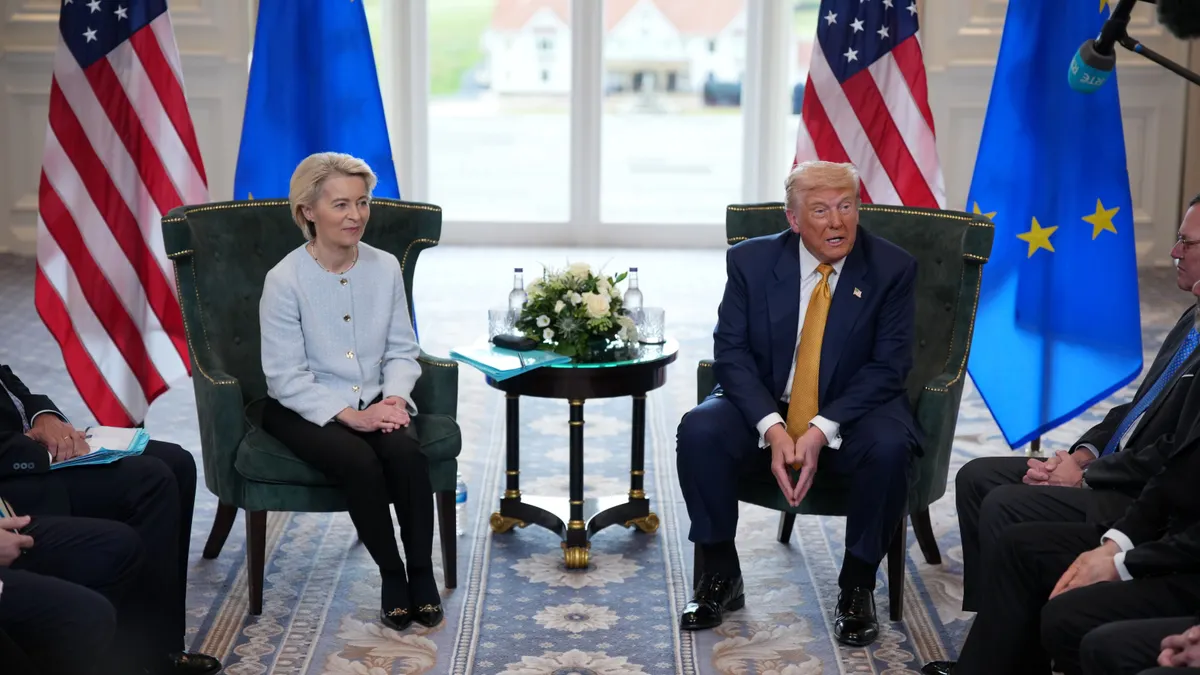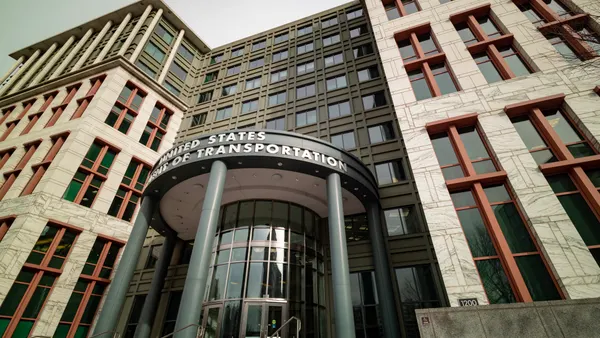The United States and the European Union formalized the terms of the framework trade agreement the two trading partners announced at the end of July, per a joint statement published by the White House Thursday.
The statement provides additional clarity and detail surrounding the terms U.S. President Donald Trump and European Commission President Ursula von der Leyen shared following negotiations in Scotland on July 27, including a 15% tariff on EU imports by the U.S. The two trading partners will “promptly document” the agreement, per the statement.
Under the agreement, the U.S. committed to apply either a tariff of 15% or a most favored nation duty rate on EU imports, with the higher of the two to be enforced. The U.S. will set a cap of 15% on tariffs for imports of pharmaceuticals, semiconductors and lumber, per the statement. Those sectors are currently under Section 232 investigation. Similar probes have led to sector-specific tariffs of up to 50%.
The U.S. also plans to apply only the most favored nation rate set by the World Trade Organization to aircraft and aircraft parts, generic pharmaceuticals, chemical precursors and “unavailable natural resources,” effective Sept. 1. The two trading partners will “consider other sectors” to add to that group.
Meanwhile, the EU said it intends to eliminate tariffs on U.S. industrial products and provide preferential market access to a range of U.S. food exports, including tree nuts, fresh and processed fruits and vegetables, pork and bison meat, and dairy products.
Once the bloc formally introduces legislation to enact these measures, the U.S. plans to apply a tariff of 15% on EU cars and auto parts, unless the covered goods are subject to a higher most favored nation duty rate. The two countries also intend to cooperate on automobile standards.
“These tariff reductions are expected to be effective from the first day of the same month in which the European Union’s legislative proposal is introduced,” according to the statement.
For steel and aluminum imports, the two trading partners said they would “consider the possibility” of cooperating on ring-fencing their domestic markets to protect against overcapacity.
As part of the agreement, the EU expects to procure $750 billion in energy products through 2028 and $40 billion worth of artificial intelligence chips from the U.S. EU companies would also invest $600 billion in the U.S. over the next three years.
The statement also says the EU will work to reduce regulatory burdens on U.S. companies that could inhibit transatlantic trade.
“Predictability for our companies & consumers. Stability in the largest trading partnership in the world. And security for European jobs & economic growth in the long-term,” von der Leyen said in a post on X Thursday. “This EU-US trade deal delivers for our citizens & companies, and strengthens transatlantic relations.”














